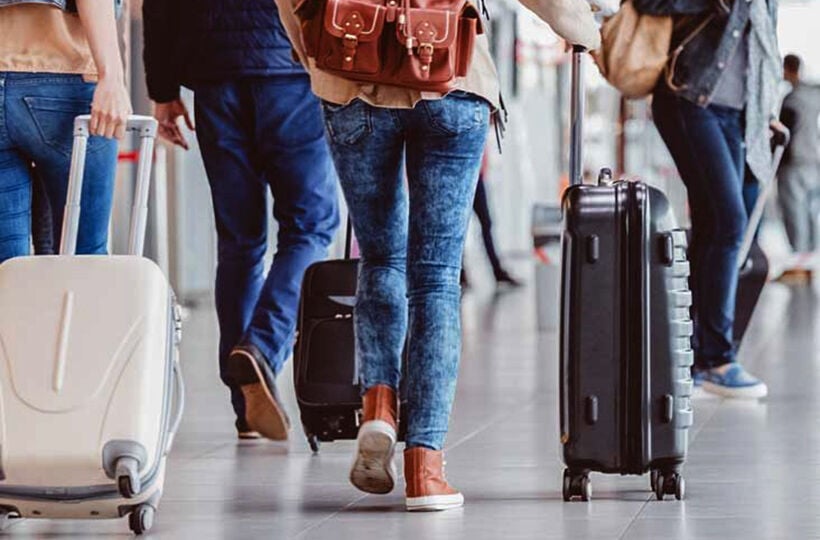Singapore and South Korea warn Thais not to enter their countries with cannabis products

Following the June 9 announcement about Thailand’s decriminalisation of cannabis products, other Asian countries have warned Thais and foreigners not to bring Thai weed into their countries. Japan and Indonesia have already made direct announcements to their respective Royal Thai embassies.
Now Thai embassies in South Korea and Singapore have joined the list to warn travellers from Thailand not to carry marijuana, other cannabis-based products or cannabis extracts through their borders. In some Asian countries they would face a jail term, or even the death penalty.
The Royal Thai embassy in Seoul has posted a notice on its social media.
“Thai travellers must not carry cannabis, hemp or products containing these plants into South Korea.”
“Possession or use of the substances carries a jail term of up to five years, while smuggling cannabis or hemp is liable to a jail term from five years to life imprisonment.”
“Violators will be deported from South Korea and barred from returning.”
In Singapore, known for draconian penalties for illicit drug use, the Royal Thai Embassy have posted that Thai travellers “must not bring cannabis-based products or cannabis into the city-state”.
“Possession and consumption of cannabis or hemp can lead to the death penalty.”
Cannabis in Singapore is currently illegal for recreational purposes, but medicinal purposes have been allowed under “extraordinary circumstances” in recent years. Possession or consumption can result in a maximum of 10 years in prison, with a possible fine of S$20,000, as well as caning, under the Misuse of Drugs Act.
Similar warnings are now being posted at the Thai/Cambodian border reminding travellers and truck drivers crossing into Cambodia not to carry cannabis or cannabis-based products into the country.
Possession or consumption of cannabis or its products still draws stiff penalties under Cambodian law.
Cannabis in Malaysia is legal for medical purposes. Recreational use of cannabis under Malaysian legislation provides for a mandatory death penalty for convicted drug traffickers. Individuals arrested in possession of 200 grams (seven ounces) of marijuana are presumed by law to be trafficking in drugs.
In line with many south-east Asian countries, possession, distribution, and production of marijuana is officially illegal in Vietnam, with harsh penalties on the books for contravention of the law. Medical marijuana is also not legal.
In the Philippines, under RA 9165, cannabis is listed as a “dangerous drug and the sale, possession, use, importation, manufacturing, cultivation, among others, of which are prohibited and punishable by fine and imprisonment”.
The Thai embassy in Jakarta issued warnings on June 21 announcing that Thais must not carry cannabis or cannabis products into Indonesia.
Then the Thai embassy in Japan warned Thais not to carry cannabis or cannabis-based products into Japan on June 24, reminding them that severe penalties and jail time apply.
Thailand is the first country in Southeast Asia to decriminalise cannabis, removing the plant from its category 5 narcotics list. The announcement has left Thai legislators on the back foot with new laws awaiting debate in the Thai parliament and has sparked a round or rollbacks by institutions, politicians and public offices to clarify the broad interpretations.
Meanwhile, in this twilight period, cannabis products are being freely sold and cottage industries are springing up to take advantage of the delays in new laws and prohibitions being enacted.
SOURCE: Bangkok Post
Latest Thailand News
Follow The Thaiger on Google News:


























